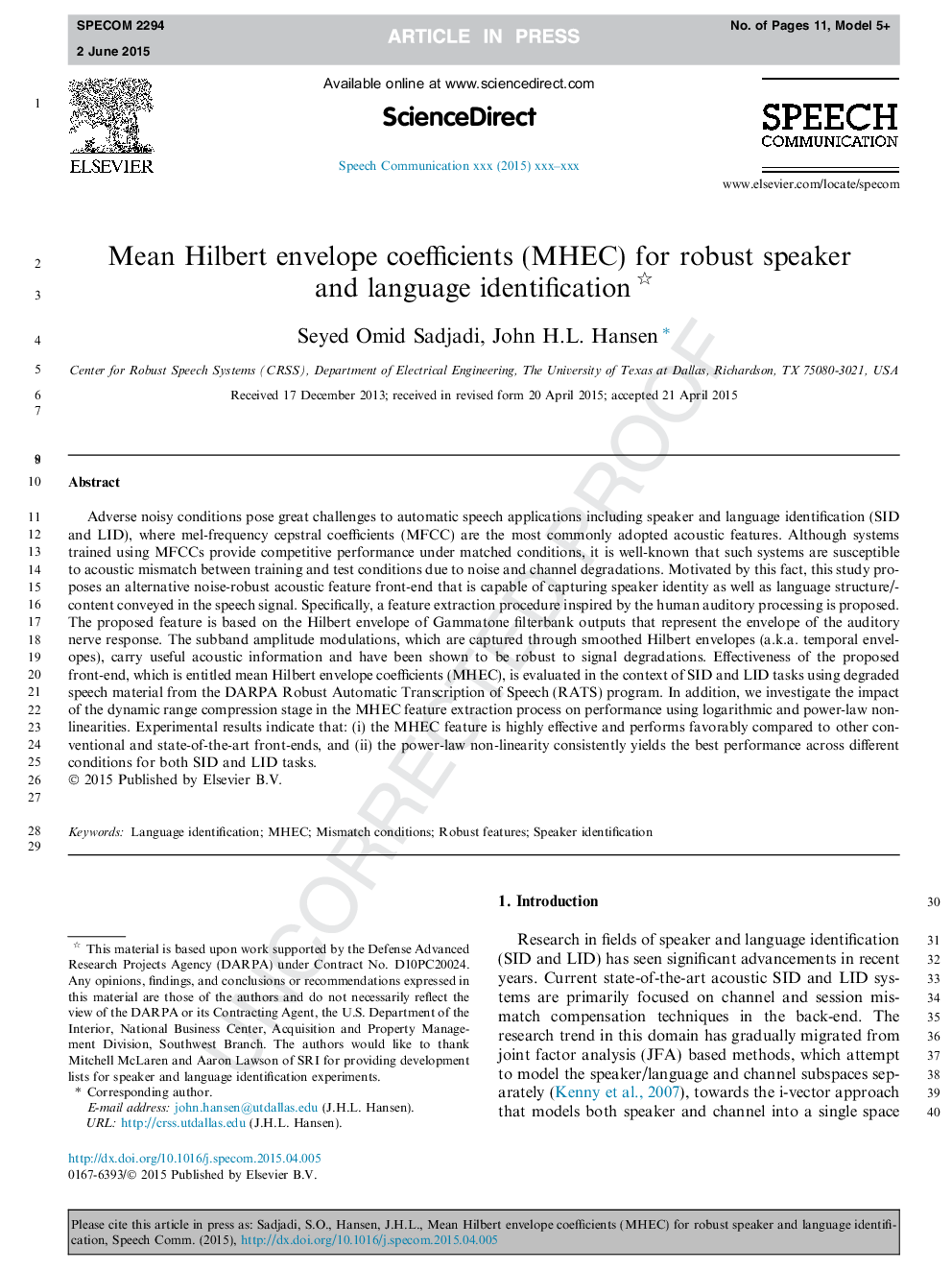| Article ID | Journal | Published Year | Pages | File Type |
|---|---|---|---|---|
| 6961056 | Speech Communication | 2015 | 11 Pages |
Abstract
Adverse noisy conditions pose great challenges to automatic speech applications including speaker and language identification (SID and LID), where mel-frequency cepstral coefficients (MFCC) are the most commonly adopted acoustic features. Although systems trained using MFCCs provide competitive performance under matched conditions, it is well-known that such systems are susceptible to acoustic mismatch between training and test conditions due to noise and channel degradations. Motivated by this fact, this study proposes an alternative noise-robust acoustic feature front-end that is capable of capturing speaker identity as well as language structure/content conveyed in the speech signal. Specifically, a feature extraction procedure inspired by the human auditory processing is proposed. The proposed feature is based on the Hilbert envelope of Gammatone filterbank outputs that represent the envelope of the auditory nerve response. The subband amplitude modulations, which are captured through smoothed Hilbert envelopes (a.k.a. temporal envelopes), carry useful acoustic information and have been shown to be robust to signal degradations. Effectiveness of the proposed front-end, which is entitled mean Hilbert envelope coefficients (MHEC), is evaluated in the context of SID and LID tasks using degraded speech material from the DARPA Robust Automatic Transcription of Speech (RATS) program. In addition, we investigate the impact of the dynamic range compression stage in the MHEC feature extraction process on performance using logarithmic and power-law nonlinearities. Experimental results indicate that: (i) the MHEC feature is highly effective and performs favorably compared to other conventional and state-of-the-art front-ends, and (ii) the power-law non-linearity consistently yields the best performance across different conditions for both SID and LID tasks.
Related Topics
Physical Sciences and Engineering
Computer Science
Signal Processing
Authors
Seyed Omid Sadjadi, John H.L. Hansen,
